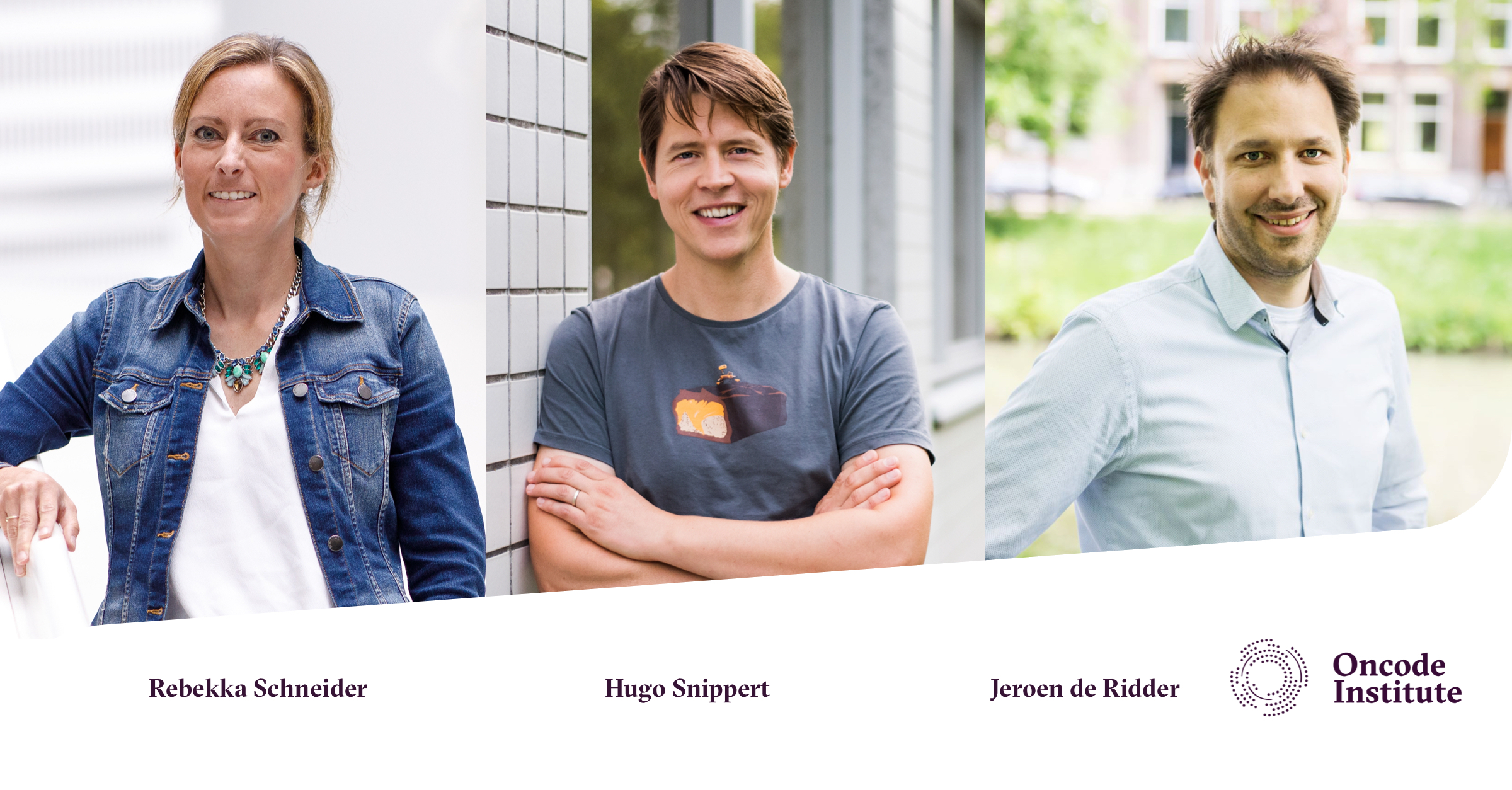Oncode Institute is proud to announce that Oncode Investigators Rebekka Schneider (Erasmus MC), Jeroen de Ridder and Hugo Snippert (both UMC Utrecht) will receive the ERC Consolidator Grant. The funding supports excellent mid-career scientists to consolidate the pursuit of their most promising scientific ideas.
Rebekka Schneider comments: “In my project ‘Rewind FM’, I'm tackling the toughest cancers, the ones with fibrosis, which is like a tough scar tissue that makes the tumors hard to treat. When cancers have fibrosis, it's often linked to shorter survival and poorer responses to treatment. My focus is on a specific blood cancer called myeloproliferative neoplasms (MPN). What makes my project groundbreaking is that I'm trying something no one has done before – reversing fibrosis in its advanced stage. This matters greatly, because fibrosis is a major factor in almost half of the deaths in developed countries. Surprisingly, we don't have good treatments for it, and some people doubt if we can reverse fibrosis once it's set in. I've gathered a lot of knowledge and tools over the years, thanks to support from Oncode Institute and my ERC starting grant. In addition, I’ve built a global network with industry, patients, and clinical trial centers to translate our findings into better treatments for patients. In Rewind MF, my aim is to rewind even advanced fibrosis in MPN, making a big difference in how well patients do. Looking ahead, I hope to apply what we learn to other fibrotic cancers too, working with other Oncode researchers to improve outcomes across the board.”
Hugo Snippert explains: “My research is all about early-stage colorectal cancer (CRC), specifically the stage directly after tumors progressed from non-cancerous to invasive. This transformation is a crucial milestone in tumor development, with clear impact on treatment and outcome. However, it takes place in what I call the 'dark Middle ages' of its timeline, because it's not well understood due to the lack of good models and scarcity of patient samples. With this ERC grant, I'll be using special samples that include both the pre- and post-transformed tumor areas. I'll also create organoid models of these regions to study how the tumors change. My goal is to figure out the details of this 'dark Middle ages' phase, focusing on processes like how quickly the tumor mutates, the order in which DNA changes happen, and the patterns involved. By doing this, I want to settle the debate on how tumors progress halfway through their development. Improving our understanding could help us to recognize the earliest signs of malignant cancer, which could lead to new ways to intervene and prevent cancer from developing.”
Jeroen de Ridder says: “In personalized medicine it is all about tailoring treatment decisions to the individual patient. For cancer patients, for instance, these decisions can be based on a thorough characterization of the tumor at a molecular level. However, recent artificial intelligence (AI) models, that work so well on images and text, struggle in dealing with the complexity of these molecular data. When it comes to patient-derived molecular profiles, there is simply not enough patient data to use within modern AI models. To fix this, the FoundationDX project is trying a new approach. Instead of immediately training on patient data, we first want to teach an AI about molecular disease biology by creating so-called foundation models based on massive amounts of biomolecular data from single cells, molecular profiles of healthy and sick tissues and networks that show how different biological pieces connect. We're using a special kind of learning called self-supervised learning (SSL), an important driver of AI. Once the AI has some ‘common sense’ about molecular disease biology, we can finally train it to make predictions such as “what drug should this patient receive?” or “what tumor subtype does this patient have?” In this way we can benefit from the enormous progress in AI and thereby bring truly personalized medicine one step closer.”
Chris De Jonghe, Valorization Director of Oncode Institute, says: “The ERC grant is a wonderful and well-deserved recognition of the innovative cancer research of these Oncode Investigators. We are particularly excited that each of the funded projects will also fuel the translation of novel insights into new diagnostics and treatments for cancer patients.” Jan Paul Medema, Scientific Director and Head of Oncode Institute, concludes: “It is great to see that these talented researchers receive the European recognition they deserve. We are proud to call them Oncode Investigators and are sure that their research will result in new exciting insights in the coming years.”
